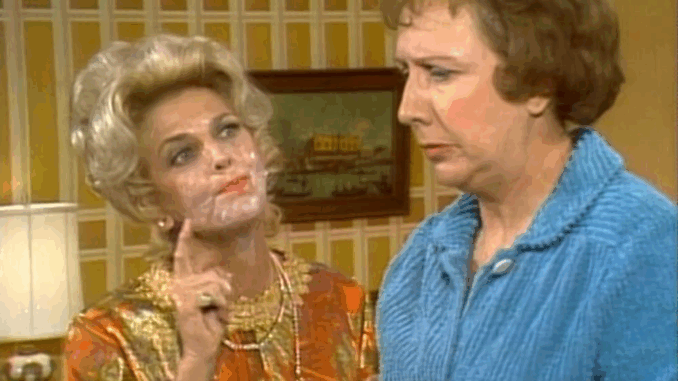
All in the Family is often remembered for Archie Bunker’s loud opinions and sharp-tongued arguments. But in the Season 3 episode “Edith Has Jury Duty,” it’s the soft-spoken, gentle-hearted Edith who quietly takes center stage—and in doing so, delivers a powerful message about civic duty, personal growth, and the evolving role of women in society.
Though not as politically explosive as other episodes, “Edith Has Jury Duty” offers one of the show’s most nuanced explorations of female empowerment, responsibility, and the clash between traditional gender expectations and modern civic engagement.
A Woman Out of the House—and Out of Archie’s Control
When Edith is summoned to serve on a jury, Archie is incensed. To him, women belong in the home, not in courtrooms or public decision-making. His dismay isn’t just about inconvenience—it reflects a deep-rooted belief in rigid gender roles. Edith, the “dingbat” he’s always underestimated, suddenly becomes part of the justice system, a role Archie cannot fathom her fulfilling.
This sets up a classic All in the Family conflict: one partner embracing change, the other resisting it. But unlike many of the show’s episodes where arguments dominate, this one focuses on quiet transformation.
Edith Bunker: More Than Meets the Eye
What makes this episode remarkable is how it allows Edith’s intelligence, integrity, and quiet strength to shine. While she often plays the passive peacemaker, in this episode she demonstrates independence, critical thinking, and moral clarity.
We see her wrestling with the gravity of her civic role—not because she’s unsure of herself, but because she takes the responsibility seriously. In court, she listens, learns, and eventually stands her ground in the jury room, even when pressured to change her vote.
In an era when many women were still fighting for workplace equality and recognition, Edith’s story becomes an allegory for female agency in a male-dominated world.
The Civic Message: Ordinary Voices Matter
Norman Lear’s shows often blurred the line between entertainment and education, and “Edith Has Jury Duty” is no exception. At its core, the episode is a love letter to civic responsibility—to the idea that everyday people, even those dismissed by society, have the power and duty to participate in democracy.
Edith’s decision not to cave under pressure in the jury room sends a quiet but powerful message: doing the right thing isn’t always loud, but it is always essential.
A Moment of Growth for Archie
Interestingly, even Archie evolves—if only a little. Though he begins the episode mocking Edith and her civic task, by the end he shows a glimmer of respect, albeit in his gruff, roundabout way. It’s a small step, but an important one: All in the Family never promises sweeping change, only the possibility of progress.
Conclusion: A Small Story, A Big Impact
“Edith Has Jury Duty” may not be one of the show’s flashiest episodes, but it is one of its most quietly radical. It places an “ordinary” woman in an extraordinary situation and affirms that dignity, courage, and civic responsibility know no gender.
In a series known for its shouting matches, this episode whispers—but its message is no less powerful: your voice matters, even if you’re the last person someone expects to hear it from.
